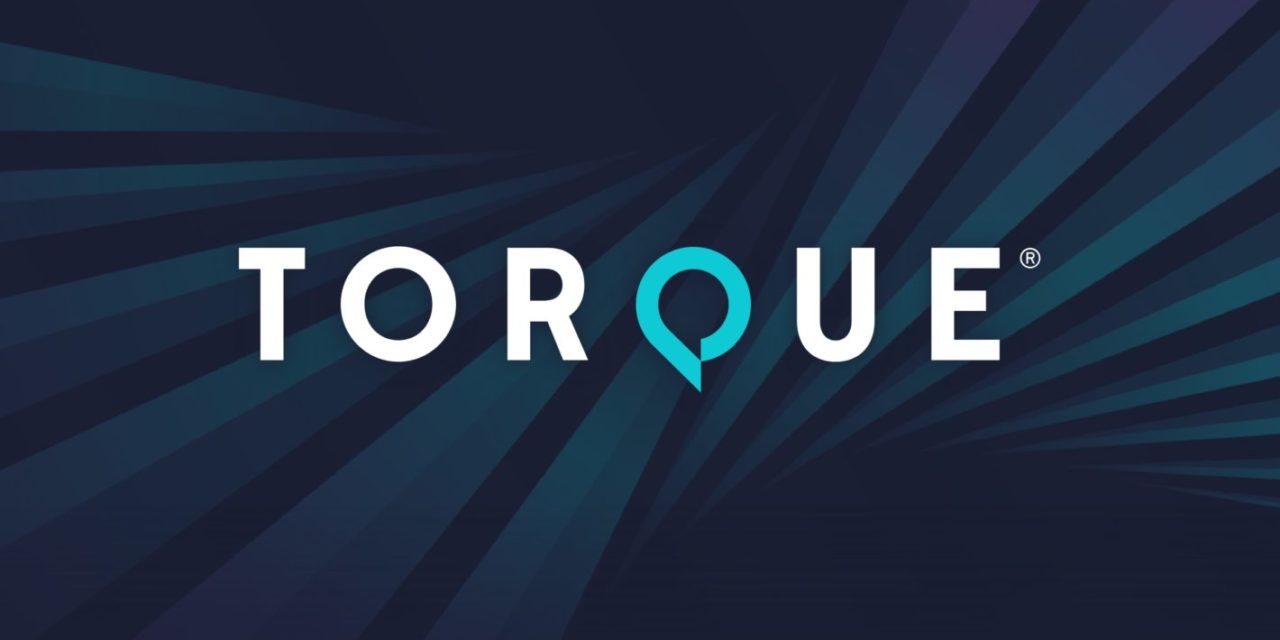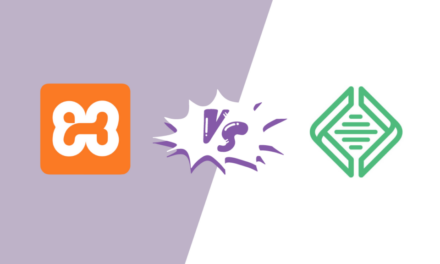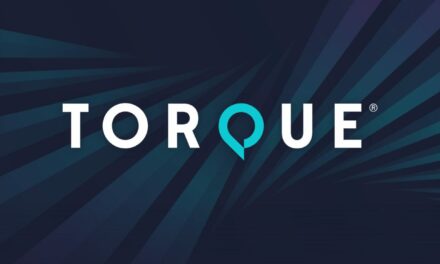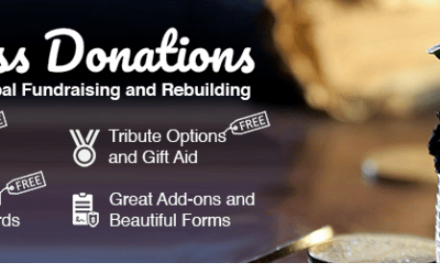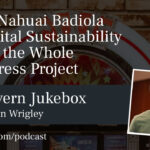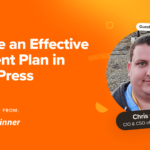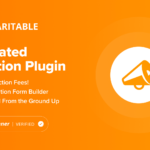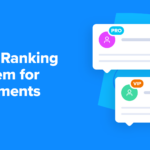Welcome to Press This, the WordPress community podcast from WMR. Here host David Vogelpohl sits down with guests from around the community to talk about the biggest issues facing WordPress developers. The following is a transcription of the original recording.
David Vogelpohl: Hello everyone and welcome to Press This the WordPress community podcasts on WMR. This is your host, David Vogelpohl, I support the WordPress community through my role at WP Engine, and I love to bring the best of the community to you hear every week on press this as a reminder, you can find me on Twitter @wpdavidv, or you can subscribe to press this on iTunes, iHeartRadio, Spotify, or download the latest episodes at wmr.fm. In this episode of Press This we’re going to be bringing back our popular segment or I guess this month’s part of our popular stagnant Word Around the Campfire, or our August episode, and joining me for this episode I would like to welcome back to press this, Mr Doc Popular of Torque. Doc, welcome back.
Doc Pop: Thank you so much I assume it’s a popular segment because I’m on it. And my name is popular.
DV: Well, that’s what I meant by that is a popular segment, featuring Doc Popular of course, and popular because people do like to hear about WordPress news I know that is one of my favorite topics, but that is a good point Doc I know near your presence here defining that really for the series. Also joining us is a prior guests to press this they think just one time guests but maybe two time. Welcome the back to press this, Rob Stinson at WP Engine Rob. Welcome back to press this.
Rob Stinson: Thanks for having me. I hope I don’t decrease the popularity of this episode.
DV: Well if your last name or popular increase the popularity of the show which would help really alive. But you were you were prior guests and you were talking about custom blocks and I think block world at the timer was this after you joined the WP Engine
RS: It was it was a couple of years ago so it’s pre. Prior to joining to BPH but yeah we were talking about Gutenberg as it was emerging, back then, and then the role of custom blocks and yeah, It was a concession.
DV: Oh wait no, I remember I was speaking at a WP Engine summit in Sydney, and I was telling people how they could go create custom blocks, and I didn’t mention the product, you know you were working on at the time lock lab, and you came up after and what do you say to me right.
RS: Well I was deeply offended that you didn’t do it Australia talking about block stuff and you don’t talk about my thing. Exactly. I talked about it a lot after that. You did, you made a podcast makeup.
DV: We’re glad to have you back. For those listening, what we cover in our word around the campfire segment is news from around the WordPress community we have a lot going on just some quick highlights if you’ve been listening to press this recently, you may have heard our recent episodes around driving material growth with social media and WordPress. That was a pretty interesting topic in general. But Mark Zahara shared some really interesting insights there from his time with Freemius and really talking though about the I’m sorry that’s not that one. That’s a, that’s another episode actually that’s coming out soon, but the marks here aptitude with spotlight Instagram feeds is really talking about how social media, and really plays a role with WordPress, via the instant his Instagram strategy is really interesting, because he talks about leveraging Instagram, or kind of like this dynamic content strategy within the context of a WordPress site. Sorry for messing that up Mark spotlight Instagram feeds is the plugin that they work on. Mark is with the parent company of WP Nair, if you’re familiar with that, Rob, or doc you. You’ve heard it before.
RS: I have heard of it I’m not super familiar with what they do.
DV: That’s a content site around WordPress it’s actually super cool. You should check it out as Jean golla is the principal behind the company vine that mark, Jean works together. And that was a really interesting episode. Next up, yeah check it out. Next up we have how to market your WordPress plugin with Richard Willard. This one was really interesting. She shared a book actually called How to Market your plugin, and she sells it on how to market your plugin, Calm, which I thought was kind of convenient. But that was a really interesting episode where she broke down some ideas for coming up with new plugins if you’re looking to get into the business or marketing them once you know that was a really interesting one from her. And then other quick hit items in the WP Engine universe within the last month we launched some new offerings, including general availability for product called Bruce suite, which is really around helping agencies drive MRR in their agency business expanded our E commerce offerings with new enhancements around application performance monitoring WP Engine comm forward slash e commerce, and then another cool little open source announcement. There’s a new open source project called the Atlas content modeler, it’s actually a WordPress plugin, and it’s really designed for kind of creating custom content models within the WordPress context explicitly for headless WordPress configurations. Rob Have you had a chance to actually check that out I know you kind of nerd around with this stuff sometimes,
RS: that, in general, everything that the Atlas is doing. I like the approach that they’re taking the Atlas content modeler, facilitating structured data and everything that’s pretty cool. In general though, I do love what Atlas is doing and how it allows content creators to continue to embrace the power of WordPress, the block editor and everything like that but making it available for for web devs to do what they love and building out good headless instances.
DV: Absolutely and that headless beside the Atlas content model, it’s not only just, of course GPL but it’s distributed for free as well. And it’s really interesting, it’s like a lean and mean custom post type and, you know field essentially content modeler. It’s extremely simple, but very effective in the headlights context I thought that was pretty cool. Doc, I have a question for you. Did you do you follow what goes on post status match like get the post status newsletter like hanging out in their Slack channel or anything like that. I don’t.
RS: I am not really recently so if you ask me a question about something that’s come out like in the last couple of newsletters, I’ll probably won’t have it but I’m definitely familiar with my status, followed along with the newsletters over the past few years,
DV: did you hear about the status acquisition tracker that they really recently released.
RS: No, with all the acquisitions that are happening here. Well, that sounds kind of cool.
DV: I really need to like read up because Corey Miller is essentially running point at post status these days and it was kind of a changing of the guard there with Brian, but there’s this really interesting page and post status com where slash acquisitions, where they’re not only tracking, you know, new acquisitions that occur within the WordPress community, but also one from the past so you can kind of get a nice baseline for, you know, major products and universe where WordPress universe and kind of the different acquisitions that took place over time so that was really cool there from Corey, I guess, SIADH had told me they were nerding out about that at some point and I guess, Corey, put that out there I’m sure there’s more to the origin story than that I mean in the state that but I thought that was really cool by Korean and set that up over their status to check out the status.com forward slash positions. It’s pretty cool, he was sorry.
DP: But I was just gonna say there’s actually quite a few things in the acquisition space like there’s been so many lately that there’s even sites now, where you can acquire plugins and people can list their plugins for sale. And then, even just looking at this post status, acquisition, I see several listed that I didn’t know about but then there’s been a few this week that happened to me to know my year yet so it’s been crazy this year. Plugins changing hands, people joining larger teams with their smaller plugin developments. You’re gonna say,
RS: Yeah I was gonna say, this looks really interesting because it suddenly feels like, let’s say the last six months last 12 months has been an uptick in acquisitions or Aqua hires, it’d be good to look through this and just to see if there’s just a feeling I have or whether or not there has been an increase because this took a pretty good list. And yeah like DocuSign is a key that I wasn’t aware of.
DV: Yeah, there’s no, to my knowledge, you know, public record I bet beyond, beyond this in terms of like if it’s picking up I guess I don’t know if anyone else that’s kind of compiled a list like this. The pace of acquisitions have been a big topic and I know you know that’s probably even going to come up a couple of times even here in this episode but it’s come up in multiple episodes prior, and you know it’s really interesting because, like, on one level, you hear people like, oh, there’s so much consolidation, it’s hard to compete and then on the other level it’s like we know that helps value businesses and that’s actually kind of cool like that there’s like this Ian and Yang effect but it’s definitely been a huge topic of conversation. I want to dig more into some of the kind of key news items and WordPress in the last month, and particularly around word camps because I know like, the world’s kind of opening back up. But we’re gonna take a quick break. We’ll be right back.
DV: Welcome back to the Press This the WordPress community podcast. Mark we’re in the middle of our monthly episode word around the campfire, right before the break we were talking about whose status is acquisition tracker, and if blue status. COMM forward slash acquisitions. Now when I shifted over to WordCamps Doc, you know, I know that a lot of countries are getting fairly, you know high levels of vaccination rates are kind of opening back up. The Delta variate kind of running amok, what’s going on in the world camp or a world, you’re gonna see word camp us 2021 in person.
DP: Well you know we we were just talking about this, what’s happening with us it seems almost too late to even announce anything I was going on a weekly basis to check the Twitter feed and everything and just a couple days ago. They finally announced that there is going to be at WordCamp us, and it’s set for October 1, which really doesn’t give them a lot of time for planning, this is going to be a virtual event, they, the word camp Central had just recently announced rules and kind of a checklist for if you want to have an in person meetup, we’re going to start allowing those again but you have to meet these criterias most criteria or is it even allowed in your area to have an in person meetup and other criteria is just like hey, you have to wear your masks, and you know certain things about like serving food or whatever so it’s it’s all the way from broad to kind of, fine, fine touch. But that being said no one is doing an in person event, yet in terms of workcamps there’s none listed, there’s nothing planned for the rest of the year. It could happen, but it doesn’t look like anything’s gonna happen in 2021 and WordCamp us we were wondering, is it going to be on or not they canceled, kind of, kind of at the last, it felt like at the last minute last year. They canceled entirely. And this year, it’s like I said it’s late announcement but you know they could still pull it off and it could be one of the best word camps yet but it’s going to be entirely virtual this year, they haven’t even announced their call for speakers or anything yet they’ve just basically updated FIM on their website, and it just kind of put a placeholder saying October 1 2021 We’re going to be doing WordCamp US again.
DV: Yeah, and I know they’ve gotten a lot of practice over the last year of virtual events I thought WordCamp Europe was expertly run, And so hopefully they have a good playback as they think about WordCamp us than a few local meetups virtually in various places which was cool because like things I could have never done before, like I spoke at a meetup in India and that was super cool but like obviously I wouldn’t have the opportunity to do something like that in my day to day so I think it’s kind of been a mixed blessing with this kind of virtual first posture we’ve had to take with word camps but I’m glad to hear that the team is being responsible and obviously people’s health come first. Doc, you talked to a lot of people in the community over torque were some interesting foes you’re talking to like RAM gall recently What’s he up to.
DP: Yeah, we tried his RAM. We talked to ram from wordfence, he writes a lot of their blog posts these days, and he just wrote about the critical SQL injection, that was found in WooCommerce. That was an interesting vulnerability that was found it was found before it was exploited in the wild, we believe it was such a critical find that they forced an update they did a automatic update, which, you know, I was trying to think, maybe, a jet package done that once and it’s a really rare thing to just automatically update everyone’s plugins because there’s such a severe vulnerability. And this was one of those times. Luckily, if you have WooCommerce should just, You know, I mean, if the automatic update didn’t didn’t happen hopefully your host also kind of took action to keep you safe, but it was, it was a pretty severe SQL injection vulnerability that they found. And hats
DV: off to the WooCommerce team for reacting to that disclosure and this is in a security sense what you would call a quote, responsible disclosure, meaning it was discovered, likely by a responsible researcher who, you know, privately disclosed it to Wus so they could develop the patch. Before it became compromised. But, you know, with a serious vulnerability. You know they have to act quickly and I think the force of a, you know, in certain forms of vulnerabilities, is more than warranted. And so, you know, hats off for me anyways to the automatic team and their response to that. And you know this is the way software works like every piece of software in your life goes through this. And so, you know really where the rubber meets the road is when you discover something you act quickly and responsibly, and, you know, I thought, I thought, automatically you did a really good job there.
RS: It’s an it’s an interesting tension, I think, and I, I’m totally on board with the idea of when many sort of vulnerabilities that are identified is forcing through the update, but in the world of GPL and open source and the control that we have over our code bases and thinking especially for teams that I’ve worked with in the past and have had pretty strict workflows around code deployment, how things are managed through Git and everything like that. It’s always, always was a little bit funny, with the idea of having an update sort of forced. In this instance, totally justified and the outcome is what is needed. But it’s a strange thing to sort of mentally wrestle with, I think,
DV: yeah actively exploited tends to be a good barrier or a barometer that folks will use and I’m certainly not a security expert. No enough to be dangerous, but you know I think that just fundamentally, you know, knowing that, you know WooCommerce, is the largest e commerce, you know market or type of site in the entire world. It’s incredibly important, and to to the web at large, and, you know, many many many more sites and opportunities and didn’t even pop, you know, very popular platforms like Shopify. And so like, it means something. And so I think it’s good that there’s a solid team behind it when it’s needed. Absolutely. I want to save a little time for WordPress by me, because like, oh my goodness five eight just came out last week he’s gonna talk about it on this episode. Rob one of the highlights from finding
RS: the biggest thing I would have to say is probably the introduction of what we’re doing but I got a block in the block. It’s your experience taking over the widget experience in WordPress so widgets in WordPress have been around for a long time. They’ve had a particular role in the way we’ve built sites over the past decade or so different themes have interacted with the widgets experience in so many different ways. But the block editor is in there now. And I guess the world of WordPress is sort of catching up with what that means. The net effect I think is fantastic I think it makes total sense. I know sort of some interesting themes including even the Genesis Framework, sort of, technically, you know, adjusting to the technical shift that the, the widgets experience, technically and from a user perspective now has,
DV: there’s one BMZ is widgets right I mean we just released in 2007. So we’re like a bunch of years then and so this this caused some teams to have to like basically know that part out, essentially.
RS: Absolutely. I’m thinking of a project that I worked on at a large agency, seven or eight years ago, and we reject to build on top of the widgets experience to basically build a almost a site builder exclusively around the widgets and the way that worked. So yeah widgets in themes have been leveraged a lot and leverage, like I said, a lot of different ways so it’s a big shift. And there’ll be, you know, people will be considering backwards compatibility, of course, but I think what it does for the average user is really positive.
DV: Well, it, it is a big shift but you know it’s funny, you know you remember you remember all the hubbub in 2018 leading to the release of the block editor and core and how it’s gonna turn it into wicks and blow up WordPress, all the other, you know, you know, naysayer type things, but like what I’m hearing about five eight with themes, particularly around JSON is everyone’s excited about it, why are they excited, Like, things are changing and the old stuff kind of needs to be like backwards compatibility eyes and dealt with, like, why are people excited.
RS: Well I think there’s, there’s a whole bunch happening around full site editing right now, we’re sort of in this transition period where with, we’re seeing some of the features that are sort of being worked out and matured a little bit. The Gutenberg plugin this Sunday at version two core. And you mentioned like your theme JSON right and I’ve been thinking about this a little bit. What what it means for WordPress. WordPress developers for people that build sites with WordPress agencies. And we’re starting to see, I would say some of the promise of the block editor, and some of the things that we need to be easier. In WordPress, are becoming easier and I think
DV: I’m glad you said that part because there’s this is the story I heard and this will be a short read. But it. To me it really gets down to like shortening the time to do cool stuff. And I think there’s some really interesting points here that we’re going to cover. We’ll be right back.
DV: Well everyone welcome back to Press This WordPress the podcasts on WMR. We’re in the middle of our episode word around the campfire covering news from around the WordPress community, Right before the break we were talking a little bit about 5.8 and seems JSON. Now Rob I’m sorry I interrupted you there, but I was talking to WP engines digital team about the update, and they were like, oh that project we just did could have been like so much easier using being into JSON. So like I feel like there’s this excitement around this modularized way of using a design system in WordPress. What are your thoughts I mean there’s definitely your.
RS: Yeah so I think I said just before like the things that should be easy getting easier. That’s slightly one of the block editor represents right, but prior to the block editor we had the classic editor, you know, and to build out a landing page, with beautiful design and different columns and all sorts of things that that wasn’t too easy. In just, you know, native WordPress prior the block editor makes that easy. Creating a theme in modern WordPress is getting easier, again, and that’s what the theme JSON, sort of, you know, within five eight moving forward and full site editing represents, it’s a really structured approach to be able to configure the way a site is styled from a global styles perspective, and even down to block styles, and the various features that are turned on or made available to the end user and things like that. But the beauty of it is that it’s highly structured and it’s gonna be highly documented obviously documentation still being worked on. But for people like even myself, I’m a bit of a tinkerer on WordPress I wouldn’t say I’m a senior engineer by any means, but I can work with that to come in to configure a theme, a WordPress theme in the new modern context and have it look and operate in a really particular way. And it’s it’s it’s really interesting, The timing of this, because of the last few years. In the world of web development in general in the money we’ve not even just WordPress but modern web development. There’s lots of conversation about how hard it is now back when, probably the three of us got started, you open up a file and you name it index dot HTML he writes in the HTML and then you write a bit of CSS, maybe a little bit of JavaScript and that’s just sort of how the that was the, the entrance into the world of web development, but you can still do that. But the modern web with all the dependencies and, you know packages and the way the various build tools that we have to have now that seem to be just the standard now, like the hard things, I would say a harder. And that applies to some, you know, for many people to modern WordPress as well. Obviously, JavaScript and React JavaScript approach that we now have some of the things are definitely harder, but that’s what I love about what the theme. The theme of JSON represents for people that want to still build with WordPress and build themes and build out custom experiences is that it lowers that barrier to entry, significant for being able to create custom experiences so it is really exciting, it’s still in its sort of, I would say it’s in its infancy, it’s still being sort of built out. But what I’m seeing some folks do, as it was you know starting to mess around with it and explore that is really incredibly encouraging I think it brings back a piece that I have, I suppose would be able to sort of to step in, easily into a project and do something with WordPress, in a comfortable way in a way that I can really easily lead in on the documentation, without having to you know, I guess they got to go really understand react now and all these sort of no dependencies that I guess that barrier to entry is being lowered again and that’s a really really encouraging thing to say.
DV: That’s really great to hear and I know that. Certainly everyone likes and easy but, so I’m guessing, certainly the folks I heard raving I definitely consider senior engineers. Right. Think you’re underselling yourself I think you give yourself credit for that. Thank you for running through is that really excited to see that progress there and also really excited to see to kind of community kind of combine these capabilities, it’s really fun to to see WordPress to have such evolutionary moments after having, you know, been around, just so long on the web, Doc. This isn’t the only update though in the block world. I heard something about the WordPress Pattern Repository what’s happening there.
DP: Yeah, So the Pattern Repository has been something we’ve talked about for a while. Ever since we had the idea of blocks, introducing Gutenberg, there was this kind of idea of like eventually there’ll be kind of this store where you can kind of like get new types of blocks which we’ve we’ve gotten that but then the ability to import patterns is kind of the newest so patterns are produced by seven WordPress and the pattern directory is just like a plug in directory. It’s just a place where you can kind of look into sort of patterns and the layouts on the page are very visual and you can kind of go like, Oh, that’s what I’m looking for, and just import that and instead of creating a block from scratch and setting it up you can kind of or even a group of blocks, you can just import this pattern, and have like a really cool effect you know do a tone effect it’s just kind of reading made, or a, you know, click here for more information button with a nice kind of photo on top. Background faded out behind your text like all these different things that you might use either for full site editing or inside your blog posts.
DV: Super cool, so check out the Pattern Repository thank you so much Doc for that rundown and thank you for joining us today.
DP: Yeah it was great being here.
DV: Thank you. Awesome. Thank you Rob for joining us.
RS: Thanks so much for having me.
DV: Yeah, I love the rundown of 5.8 If you’d like to check out more about what’s happening in WordPress please visit torquemag.io Again, this has been your host, David Vogelpohl I support the WordPress community through my role at WP Engine, and I love to bring the best of the community to you here every Press This.

